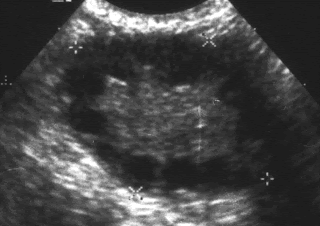Poly Cystic Ovary Syndrome
.jpg)
Image Courtesy: wrigglyrascals.com
Poly Cystic Ovary Syndrome (PCOS) is a commonly seen problem among women these days. It affects women of reproductive age and statistics shows it is seen in 10% of women. Though in most cases it is minimal and wont be even noticed, the alarm rings when difficulty in conceiving is noted leading to long periods of infertility. Unfortunately there is no universal definition for the PCOS, but we can guess it from the name itself. Poly cystic means ‘with many cysts’ and it tells you it’s a condition of the ovary having many cysts. By definition a cyst is a fluid filled sac.
.jpg)
Image Courtesy : uthscsa.edu
The basic terms PCOS means this: It’s an endocrine disorder where the male hormones (androgens) in females increases to an abnormal level and affects the female reproductive cycles. This leads to a situation where women do not ovulate. Basically the purposes of ovaries are to produce eggs and release one of the mature or full grown eggs every month. The release of egg is called Ovulation. The high male hormone level inhibits the growth of the egg in the ovary so that it will not reach its maturity and so won’t be released. Thus the unreleased eggs remain in the ovary and become cysts over a period of time. Since ovulation is not happening the patient will not conceive leading to infertility.
The commonly seen symptoms of PCOS are:
- Irregular or absence of periods
- Drastic weight gain over a short period
- Increased facial hair (Hirsutism)
- Acne
PCOS is generally diagnosed from the symptoms stated above and confirmed using blood tests for hormone levels and ultra sound scan of the pelvic region. Clinical and physical examination is required for concluding on PCOS because there are other conditions like thyroid problem and ovarian tumors which can produce similar symptoms. So those factors should be eliminated first with the help of blood tests and ultrasound. A gynecologist or obstetrician should be consulted for diagnosis and treatment.
.gif)
Image Courtesy : endocrineonline.org
The absence of periods is the cardinal factor in diagnosing PCOS. The other symptoms like hirsutism and acne may or may not be present. Another interesting finding is that majority of PCOS patients who are overweight are insulin-resistant. Insulin resistance means your body is resisting the effects of insulin. Insulin is supposed to keep the blood sugar normal. So resistance to insulin causes you to become diabetic. And the drugs given for type II diabetics is effective in controlling the insulin resistance and thus PCOS.
The treatment of PCOS is in 2 ways depending on if you are looking for a child immediately or not. If you don’t have any plans for conceiving, then birth control pills are given to regularize the monthly cycles. But if you are keen on conceiving, then Metformin is one of the widely used diabetic drug. Usually both these drugs are given for 3 – 6 months. If the condition is persisting, then other methods of treatment should be followed like inducing ovulation taking drugs or surgery. Laparoscopic surgeries are useful for puncturing the cysts and inducing ovulation by scraping the walls of ovary which triggers female hormone production.
.gif)
Image Courtesy : womenshealthlondon.org
Though there is still confusion that obesity is the cause for PCOS or is result of PCOS, maintaining normal body weight is an important factor in treatment of PCOS. Increasing physical activities in your life and including more salads and vegetables in your diet will help you reduce overweight. As a first step you can start with limiting the quantity of in take. Suppose you consume 4 cups of coffees a day, you can cut it to 2 a day. Later on you can have it without milk and then without sugar… Bad eating habits are pointed out as major cause for PCOS.
.jpg)
Image Courtesy : uthscsa.edu
The purpose of this post is to spread awareness about PCOS, which is quite common today. In most of the cases it is found out and treated when infertility or difficulty in conceiving is developed. Our endeavor was to explain the disease in a layman's term. Please consult a qualified professional for more information. Knowledge about these health problems may help you identify it at an early stage itself and will help you get your bundle of joy that much sooner.
2 comments:
It was so nice to read a detailed and non-jargon post on PCOs. It is very true that this is become very common nowadays. Our amazing doctor told us that it was probably *always* common, just that people never knew about it earlier. In those days, PCO moms gave birth after many rounds of dargahs, many bhasms and animal-sacrifices. Now the uncertainty is replaced by scientific precision "conception".
It is important for women to understand this is not a disease, merely a condition. A competent doctor can help you conceive with almost no additional expense or heartburn.
I salute blogs such as these which help demystify the myths around such issues.
Hi everyone, I hope this post will be relevant in a general way to the topic being discussed. It appears that supplemental vitamin D and calcium may have a normalizing effect on your cycle, and could improve chances of conceiving. In a study at Columbia University, 7 of 13 women were able to normalize their cycle within 2 months. You can see more details about this at the Natural Solutions for PCOS website
Post a Comment